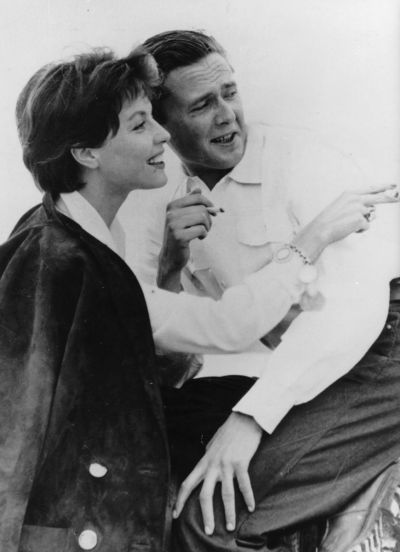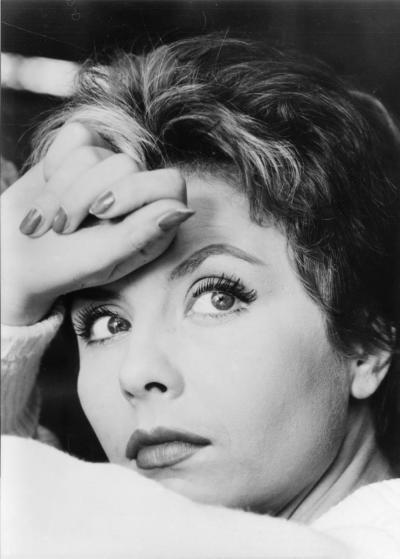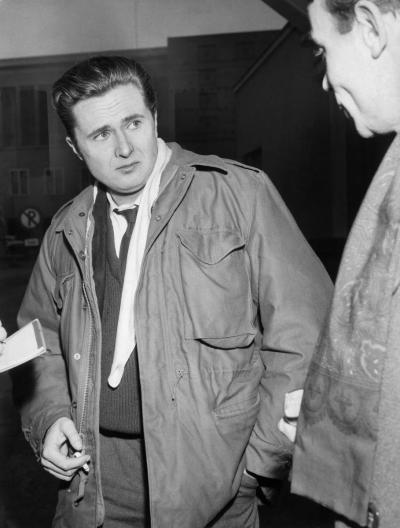Sonja Ziemann and Marek Hłasko

For Germans Sonja Ziemann was “the great film star” and Marek Hłasko was only “her Polish husband”. For Poles he was “the great rebel author” and she was only “his German wife”. The best-known German/Polish couple in the post-war period had enough explosive material to keep the yellow press happy in both countries.
A film entitled “The Eighth Day of the Week” (Ósmy dzień tygodnia) was shot in Breslau in 1957, twelve years after the war. It was based on the eponymous short story by Marek Hłasko. The director was Aleksander Ford. The producer, Artur Brauner , came from Berlin. He was of Polish/Jewish origin from Łódź (Lemberg) and had been head of CCC-Film Productions in Berlin since 1946. His acting discovery, the woman who was to star in the film, was called Sonja Ziemann. Sonja Ziemann was fascinated by the role of “Agnieszka” (Agnes) and the scenario of the love story in the chaotic post-war period. At first she was somewhat sceptical but then she decided to travel to Breslau. Hłasko also showed up in Breslau. The restless writer wanted to keep a personal eye on how they were filming his book. Here the two met for the first time and fell in love. But Sonja Ziemann was unable to acknowledge this relationship to the general public because she was involved in divorce proceedings from a stocking manufacturer by the name of Rudolf Hambach. The two had a son, Pierre, and Sonja did not wish to risk losing custody of the child. By contrast, Marek Hłasko found consolation for his love sickness in the arms of other women. Six months later, in February 1958, Marek Hłasko flew to Paris on the invitation of the renowned Polish exile publisher in France, the Instytut Literacki (French: Institut Littéraire / Literature Institute). Here he wrote for the magazine “Kultura“, by far the most important monthly periodical of Polish literature and culture outside communist Poland. It appeared from 1947 to 2000. His short stories also appeared in Tel Aviv, Copenhagen and Budapest. When Sonja Ziemann visited him in Paris the relationship grew deeper.
In 1958 “Kultura” published his short story “The Graveyard” (Cmentarze). The Paris publisher, Instytut Literacki, awarded him the prize for the best story by a Polish author. In “The Graveyard” Hłasko depicts life in a totalitarian system and shows insecure people who are fooled by propaganda. The communist government in Poland reacted quickly. The “Trybuna Ludu” (The People’s Tribune), the organ of the Communist Party of Poland, published a hostile article on Hłasko entitled “Primadonna jednego tygodnia?” (Primadonna for a Week?). This was the start of a whole series of propaganda articles against Marek Hłasko. The Polish writer had fallen out of favour with the communist powers in Poland. When his passport ran out and the Polish consulate in Berlin refused to renew it, Hłasko was given political asylum in the Federal Republic of Germany.


